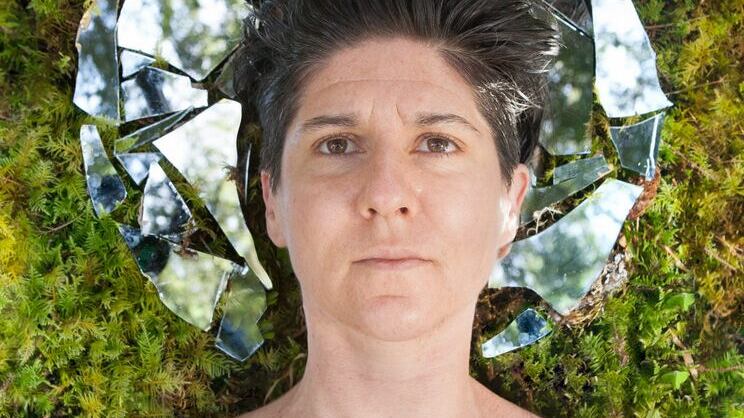WW presents "Distant Voices," a daily video interview for the era of social distancing. Our reporters are asking Portlanders what they're doing during quarantine.
When Oregon's stay-at-home order was issued, Ebenezer Galluzzo was already living in isolation.
In mid-March, the Portland-based photographer was nearing the end of an artist's residency near Cascade Head, creating vulnerable self-portraits that look to nature for guidance and push up against our limited language around gender.
"I think it was the best place to receive very intense, scary information," he says. "I was already far away from people, so the reality of the stay-at-home order and the reality of isolation from people didn't quite settle in to what that meant when I would go back home."
Still, that didn't exactly prepare him for the reality of working as an artist during the pandemic—and not just because he's now working in quarantine with his husband and 8-year-old child rather than in an idyllic coastal forest.
With galleries either closed or only open in a limited sense, Galluzzo has mainly been putting his self-portraits out in the world through virtual shows, Instagram takeovers and livestreamed artist talks. That's meant dealing with social media censorship—Instagram recently took down one of Galluzzo's nude portraits three times in one day, including his attempt to self-censor with kitten and rooster emojis—and missing out on the real-time artist-to-audience interactions that often come with gallery shows.
"Sharing this work that is all self-portraiture, because it's so personal, already feels very vulnerable for me, and I had developed a lot of tools and comfort blankets that I would do when I would go out in public places and talk about the work," says Galluzzo, who is transgender. "To be able to read a room and read people's body language as I'm speaking helps me feel safer, because I can tell how things are landing for people who might not have heard that much about somebody's trans experience."
In a way, it seems fitting to release portraits that find freedom in remoteness to a world that's living in isolation. But Galluzzo would still prefer that people weren't so reluctant to leave comments or send a message to artists who can only release their work digitally.
"Say hi to the artists that you love," he says. "They would appreciate it, I would appreciate it."
See more Distant Voices interviews here.

